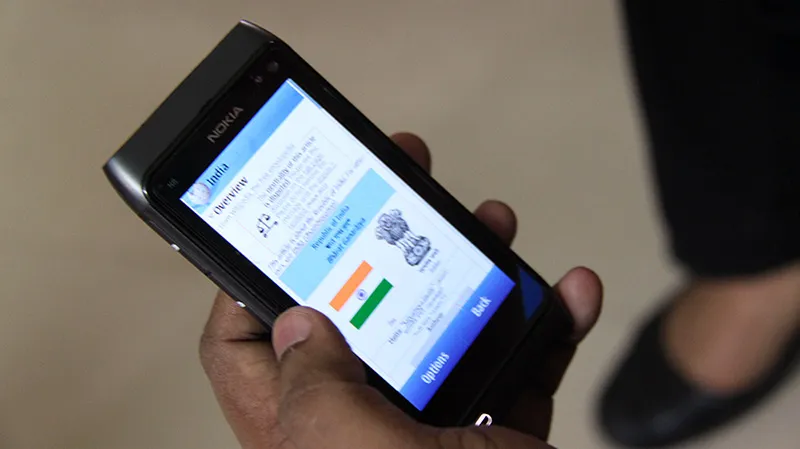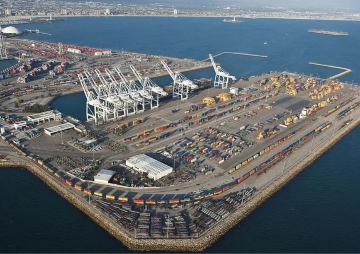
India is considered one of the world’s great mobile success stories. As a result of market reforms implemented by the Telecom Regulatory Authority of India (TRAI) between 1999 and 2009, mobile subscribership increased 500 fold while prices decreased by 95 percent, according to the 10th Anniversary Telecommunications Regulation Handbook. India has an opportunity to make a second quantum leap when it comes to Internet adoption, as the country lags behind many developing nations on this important metric. While Indian telecom service providers (TSPs) offer a multitude of services at differential prices, TRAI’s recent consultation is seen as a referendum on Reliance’s offer Free Basics, which represents less than one percent of the offers in the marketplace and which was suspended as a part of the proceeding.
Is it legal to ban Free Basics?
The Telecom Tariff Order from which TRAI derives its authority for this consultation describes the important “social objective” to connect low income users and encourage their adoption of services; the need for tariff reform to stimulate competition, specifically to support entrant TSPs; and that service providers have flexibility for pricing and alternative packages. In addition TRAI specifically “forbears” or refrains from regulating prices for “value added services, and other services with competitive markets;new or emerging services; and, services which require further study.” It would appear that TSPs in offering free and reduced cost Internet servicesare in fact following the letter of law to fulfill the “social objective,” and they are accorded tariff flexibility to do so. Moreover Free Basics meets all the conditions for which forbearance is offered. It may be the case that banning Free Basics would violate Indian telecom law.
What does the research say about differential pricing and zero rating?
The practice of zero rating, not charging certain Internet data to a mobile subscription, has been used by about half of the world’s operators in some way for over a decade. But the concept of free and differentiated service for content and telephony has a long pedigree. The current backlash against TSPs providing free or reduced prices for certain service is a relatively new and indeed unusual phenomenon. For last generation the mantra was for TSPs to offer lower prices as part of corporate social responsibility and to find innovative models and service models to support adoption. For example it is well-established that offering differential prices for medicine is essential to provision healthcare for the poor; the same logic would seem to apply to the public good of the Internet.
For example, detractors of Free Basics charge that will bring market power to the TSPs and content providers with whom it partners. They also claim that users offered a zero-rated form of Facebook that they will never venture beyond it. My investigations of zero rating in many countries show the opposite is the case. No TSP has won market share because of zero rating. In general, the companies that tend to use the model are entrant TSPs and small content providers that want a way to differentiate from the established players.When zero rating is banned, data caps for the highest priced Internet packages increase, but the lowest priced offers are removed. This simply means that the poor subsidize the rich.
Most countries are permissive, if not encouraging, of zero rating. In fact regulatory action taken against specific zero rated services in Netherlands and Slovenia were effectively overturned by new EU net neutrality rules. The European Commission even defines zero rating as “sponsored connectivity”. In the US, the 2015 Open Internet rules expressly avoid making categorical bans on zero rating and emphasize the necessity of a case by case approach.
Free Basics is not even a year old, but Facebook reports that after 30 days of trying the program, about half of its users start to purchase data, putting the country in the right digital direction. In any case, this is an important opportunity for academics and regulators to study the program, but many scholars face an anti-intellectual environment where activists have demanded banning the program before it’s ever studied independently.
What should TRAI do?
TRAI can ask some simple questions. For example for Free Basics,
Does a TSP gain market power by offering Free Basics?
On its face, it’s hard to see that’s the case given than any TSP can deploy the program. TRAI can also study the 36 countries where Free Basics is also deployed.
Is Free Basics exclusive?
There is nothing exclusive about Free Basics; any app provider can join (provided it fulfills the basic technical requirements), and any operator can participate. Moreover Facebook does not pay the operator to offer Free Basics, and the program is free for all users and content providers.
Is the TSP zero rating its own service or that of a third party service?
Reliance does not have a social network (as far as I know) nor does it provide zero rated access to its own social network, so this removes the question of vertical integration.
From the standpoint of Indian Internet traffic, the amount of zero rated data generated by Free Basics is negligible. Facebook collects only the absolutely necessary data to run the service and keeps it only as long as necessary, the principle of data minimization. In fact Facebook makes no ads in the service, so no ad targeting data (or revenue) is ever generated. Moreover Facebook has no “bottom of the pyramid” advertising models for India, and it’s likely that Facebook may never be able to monetize the users of Free Basics.
An earlier blog about this consultation reviews how theoretical concerns driven by the undocumented “social cost of computerization” unwittingly deterred India’s economic development for decades and banished IBM, a company that employs 150,000 in the country today. More than 40 years hence information technology is a cornerstone of the India economy, and the Digital India Initiative is Prime Minister Modi’s leadership platform to extend the benefits of IT even more to India’s poor. India’s poor shouldn’t have to wait 40 years to connect to the Internet when there are viable, economical ways to do so today.
Zero rating should be allowed for the simple reason that it provides inspiration for Indian entrepreneurs to develop Indian solutions for India. The spirit of innovation is about testing and learning, not banning new things.
Roslyn Laytonis a PhD Fellow at the Center for Communication, Media and Information Technologies at Aalborg University in Copenhagen, Denmark. She worked for a time at TCS Innovation Labs-Hyderabad. Read her submitted comment to TRAI’s differential services consultation.
The views expressed above belong to the author(s). ORF research and analyses now available on Telegram! Click here to access our curated content — blogs, longforms and interviews.




 PREV
PREV

